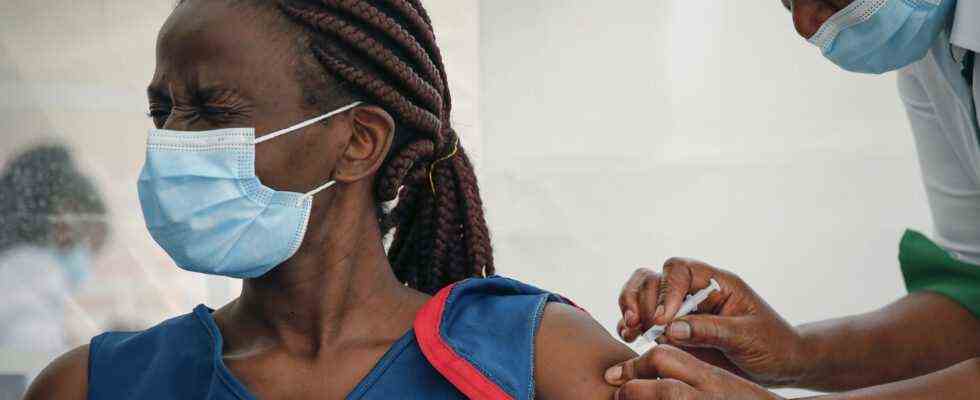Status: 07/17/2021 4:44 p.m.
Corona can only be overcome if vaccinations are abundant and fast around the world – even in densely populated Africa. The Pasteur Institute in Senegal’s capital Dakar plays a key role in this.
From Sabine Krebs,
ARD studio Nairobi
The corona virus is currently spreading rapidly in several African countries. One of the reasons for this is the lack of vaccines: Less than three percent of the population is said to have been vaccinated so far. So far, the vaccines have come from the Covax initiative of the UN Children’s Fund UNICEF and from donations. While vaccination fatigue is discussed in Europe, Africa is far from vaccination justice.
Globally recognized institute with a pioneering role
And so there are great hopes for the Pasteur Institute in Dakar in Senegal and its director Amadou Alpha Sall. The 52-year-old enjoys a high international reputation. His ambitious plan: to produce a corona vaccine on site from 2022. This could reach and protect many people in Africa. That would be a major milestone for the continent, which also has to import almost all of its other vaccines.
“The fact that we can produce for Africa in Africa would actually be a key factor in ending this epidemic,” says Sall. “This knowledge can then also be used to prepare for other pandemics. To not just talk about Covid or disease control for future pandemics. Such a project is absolutely strategically crucial.”
Around 300 employees currently work at the Pasteur Institute, most of them local scientists, virologists and epidemiologists. The house plays a key role in West Africa and is recognized worldwide. A rapid corona test was developed here very early on, almost immediately after the outbreak of the pandemic. It is now being exported to several countries. And the Pasteur Dakar Institute already has experience in vaccine production. Among other things, it has been producing vaccines against yellow fever for decades – as one of four production facilities, recognized and certified by the World Health Organization.
With its 3000 employees, the Pasteur Institute in Dakar plays an important role in African vaccine research.
Image: picture alliance / photothek
This means that the prerequisites are good, says Institute Director Sall: “Obviously we do not have access to enough Covid vaccines for Africa. So if we manufacture this here, it would also be available for Africa.” In addition, says Sall, the institute has 80 years of experience in manufacturing vaccines. “We can produce vaccines from raw material to delivery.” The virus with all its variants hits a largely unvaccinated population in Africa – 1.3 billion people live here. Today nobody can reliably predict how the corona infection numbers will develop in the next few weeks. The lack of vaccination protection also harbors the risk that new mutations of the virus can arise.
Support from the European Union and Germany
In addition to Senegal with its Pasteur Institute, several African countries are working on establishing vaccine production. So-called “vaccine hubs” are under discussion. These are supported by the EU, which wants to provide one billion euros for this purpose, as well as by the World Bank and other international donors. A corresponding agreement has just been reached. Germany is supporting the Pasteur Institute with start-up funding of 20 million euros. A completely new vaccine factory is planned on the outskirts of Dakar – at the highest technical level.
And so Sall hopes that his house will be able to fill vaccine in a first step and then produce it under license next year. “The time factor is crucial for this project. We now have to deliver quickly,” he says. “That is why we are working as a partner with various supporters, including Germany, on a very ambitious program to ensure that we can deliver a Covid vaccine for Africa in 2022.” And must, says Amadou Sall, because the pandemic can only be broken if everyone in the world is vaccinated. Otherwise it will break out again and again – with always new variants.

